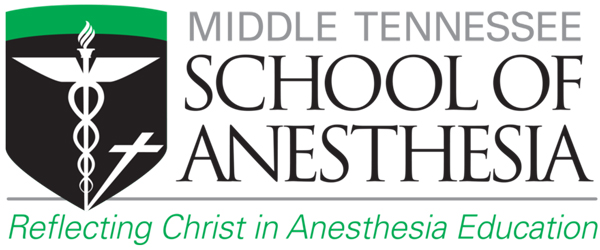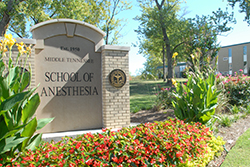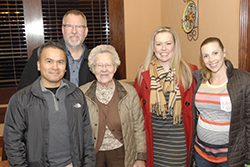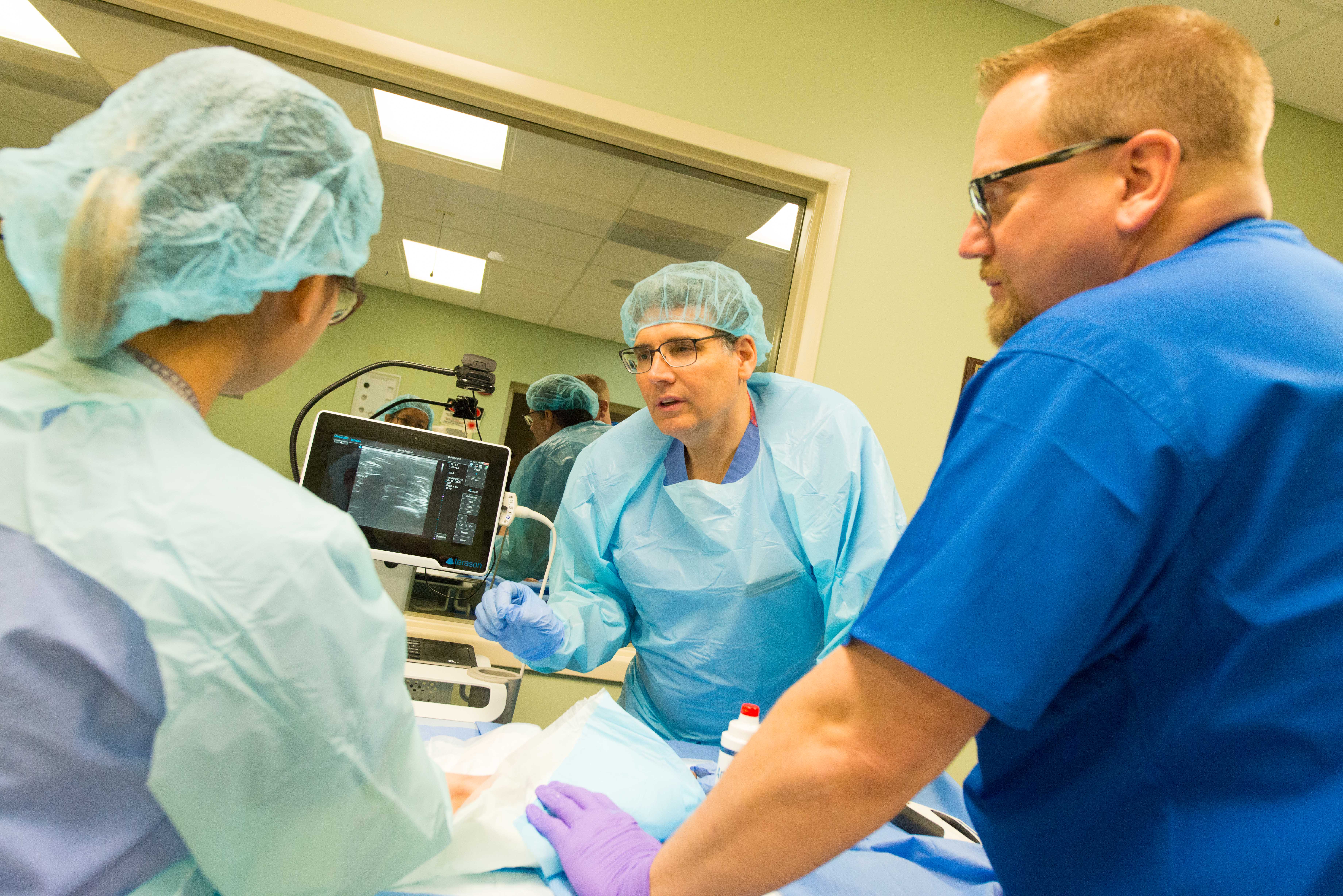
Application period for ASPM Fellowship closes Nov. 30
November 25, 2020
The application period for the next cohort of MTSA’s Acute Surgical Pain Management (ASPM) Fellowship closes Nov. 30, with classes beginning in January 2021.The ASPM Fellowship is a component of the AANA Pain Management Curriculum. According to Bill Johnson, DNAP, CRNA, Director of the Fellowship and DNAP Completion program, the primary goal is to advance the knowledge and skills of CRNAs in acute surgical pain management and prepare them to help meet the growing need for this evidence-based approach.
The Fellowship curriculum includes special focus on perioperative point-of-care ultrasound (POCUS), which is the use of portable ultrasonography at a patient’s bedside for diagnostic and therapeutic purposes. Along with its use for pain management, heart, lung and abdominal ultrasound scanning may reveal sources of hypotension, hypoxemia and other presentations of cardiopulmonary instability.
According to instructor John Shields, DNP, CRNA, POCUS is a major component of perioperative care, vital to independent CRNAs practicing to the full scope of their training. MTSA’s ASPM Fellowship offers advanced POCUS training for nurse anesthetists using online modules and hands-on workshops for Focused Assessed Transthoracic Echocardiography (FATE), Focused Assessment using Sonography for Trauma (FAST) and Rapid Ultrasound for Shock and Hypotension (RUSH) protocols.
MTSA now incorporates the BodyWorks Eve patient simulator for interactive POCUS scenario training. With more than 100 real patient scans and over 10,000 pathology variations across cardiac, lung, transabdominal and pelvic ultrasound, use of the BodyWorks Eve simulator is designed to expand training for CRNAs into emergency medicine and critical care applications, as well as pain management interventions.
Fellows’ Perspective on Chronic vs. Acute Pain Management
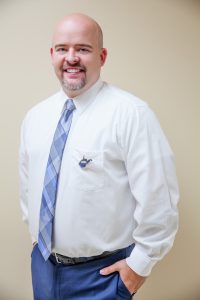 Kellon Smith, DNAP, MHS, CRNA, NSPM-C (pictured right), has been practicing nurse anesthesia for seven years and regional anesthesia and pain management for five years. After completing an earlier fellowship in chronic pain management, he is scheduled to finish MTSA’s Acute Surgical Pain Management Fellowship this fall.
Kellon Smith, DNAP, MHS, CRNA, NSPM-C (pictured right), has been practicing nurse anesthesia for seven years and regional anesthesia and pain management for five years. After completing an earlier fellowship in chronic pain management, he is scheduled to finish MTSA’s Acute Surgical Pain Management Fellowship this fall.
Smith, who practices at a rural critical-access hospital in Keyser, W.V., has a unique perspective on how CRNAs can approach the continuum of pain management – from acute surgical pain to chronic pain.
“I’ve been in a multitude of settings, including ambulatory surgery centers and Level I and II trauma centers,” Smith said. “I’ve always had a strong interest in regional anesthesia, but there weren’t many clinical sites for CRNAs to do regional techniques. So it was my own personal endeavor to dive into the study of regional anesthesia and gain as much exposure and knowledge as I could. That led to researching chronic pain management and some of the interventions for patients that suffer long-term pain conditions.”
Smith completed the year-long Advanced Academic Fellowship for Chronic Pain Management at the University of South Florida in 2019. It included a clinical practicum covering some assessment maneuvers, interventions at a cadaver lab, and a simulation experience. After that, he entered MTSA’s Fellowship.
“The biggest thing I learned by doing both programs is that pain management, and even painful conditions, are part of a continuum. Transitioning from acute pain to chronic pain can happen rapidly for different patients. The chronic pain program provided interventions to combat pain once it sets in. It was beneficial to have that background knowledge coming into MTSA’s acute pain program, which focuses on surgical approaches, trauma approaches for broken bones, block techniques with regional anesthesia, and medications to add to the interventions,” Smith said.
He added that something as simple as a hernia can lead to a life of long-term persistent post-surgical pain. “If I perform a nerve block before the operation, I’ll not only decrease the pain during that stay and short-term recovery, but studies have also shown that I decrease the likelihood of that developing into a chronic painful condition. A lot of the chronic pain interventions are being blended into the acute side and a lot of the acute interventions are preventing the pain conditions that would require the long-term chronic pain interventions. So we’re really able to tackle it from both sides,” he said.
The opioid crisis is another element of pain management that Smith is focused on, especially since West Virginia leads the nation in overdose deaths. He believes CRNAs need to be better equipped to employ multi-modal anesthesia and different kinds of interventions to combat the problem.
“Where I’m located, there are no pain clinics or pain treatment facilities nearby. A lot of patients on state-funded insurance have to travel a minimum of 100 miles to the nearest pain facility. So I saw this as an opportunity to help my community,” Smith said. With assistance from a Health Resources and Services Administration (HRSA) grant, he has opened a CRNA-driven service line for chronic pain management that is non-opioid-based. And his training from MTSA has prompted him to start the process of developing an acute pain service at his hospital. Interventions will include placement of catheters, advanced blocks, and adding medications to the blocks to reduce or even eliminate opioid medications.
“The online format and flexibility of MTSA’s Fellowship really helped. As far as the content is concerned, I learned so much. I had some baseline experience in regional anesthesia, but this program really dove into the depths of anatomy, sonoanatomy, ultrasound scanning techniques, knowledge about the ultrasound itself, and the business aspects of developing a CRNA-focused acute pain management service,” he said.
“I can’t say enough about the cadaver lab – it was truly remarkable to be able to do those blocks on cadavers and to have the anatomist show you exactly what you’re looking at on the ultrasound image. The entire program was truly a rewarding experience from start to finish,” Smith added.
Similar to Smith’s experience, Louise Scudieri, MS, CRNA, also brought her unique knowledge and experience into MTSA’s ASPM Fellowship. Scudieri is chief CRNA in an all-CRNA group at Kell West Regional Hospital in Wichita Falls, Texas, a division of YPS Anesthesia Services.
“My current practice is heavily loaded with neuro, spine and orthopedics, most having chronic pain issues,” Scudieri said. “I had introductory chronic pain education, having attended the Jack Neary Advanced Pain Management Workshop in 2010, which planted a seed, but my practices since then had only included acute pain and acute-on-chronic pain. This led me to look for advanced education and to find the University of South Florida’s and Dr. John Maye’s Simulation Based Chronic Pain Management Certificate Course in 2017.
“Upon finishing the USF coursework, I looked for advanced ultrasound courses. I have enjoyed providing regional anesthesia whenever I have had the privilege to do so, ever since the days of landmark and nerve stimulator techniques, but especially assessing the patient’s anatomy and seeing the needle and deposition of agents. This brought me to MTSA’s Advanced Ultrasound Cadaver workshop where I also learned about the Fellowship. This coursework and practice is better suited to the bedside anesthesia I do today. I commend Dr. Bill Johnson and the MTSA faculty for creating this necessary content and fostering research and sharing. Networking with these colleagues is invaluable to me, and I enjoy sharing the skills and knowledge with CRNAs one patient and one block at a time,” Scudieri added.
For more information about the ASPM Fellowship, visit www.mtsa.edu/fellowship.


